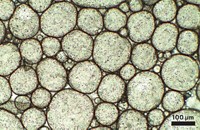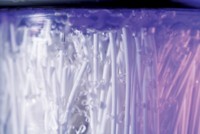Advertisement
Grab your lab coat. Let's get started
Welcome!
Welcome!
Create an account below to get 6 C&EN articles per month, receive newsletters and more - all free.
It seems this is your first time logging in online. Please enter the following information to continue.
As an ACS member you automatically get access to this site. All we need is few more details to create your reading experience.
Not you? Sign in with a different account.
Not you? Sign in with a different account.
ERROR 1
ERROR 1
ERROR 2
ERROR 2
ERROR 2
ERROR 2
ERROR 2
Password and Confirm password must match.
If you have an ACS member number, please enter it here so we can link this account to your membership. (optional)
ERROR 2
ACS values your privacy. By submitting your information, you are gaining access to C&EN and subscribing to our weekly newsletter. We use the information you provide to make your reading experience better, and we will never sell your data to third party members.
Materials
IBM Develops Water Purification Membrane
by Alexander H. Tullo
March 23, 2009
| A version of this story appeared in
Volume 87, Issue 12
Working with Japan's Central Glass, Saudi Arabia's King Abdul Aziz City for Science & Technology, and the University of Texas, Austin, IBM has developed a new desalination membrane that it says filters salts and arsenic from water while using less energy than other forms of water purification. The membrane, made from fluorine-based materials, is also resistant to chlorine damage and performs well in mildly basic conditions. "At IBM we have a 20- to 25-year record of innovative new materials based on chemistry and nanotechnology for building the semiconductor chips that we all know and use today. We've decided to target a different application, which is water," says Robert D. Allen, manager of the water purification project at the IBM Almaden Research Center.





Join the conversation
Contact the reporter
Submit a Letter to the Editor for publication
Engage with us on Twitter